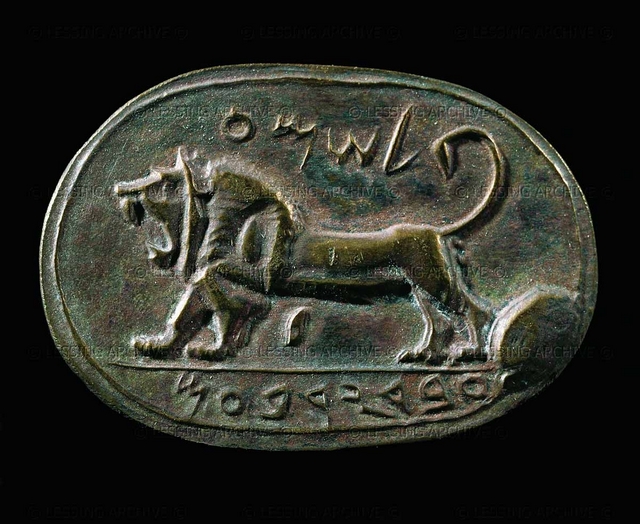Over the years the names of several characters mentioned in the Bible have occurred on seals, or small lumps of clay impressed with a seal and baked hard (called a bulla), which have been found. The Biblical names on these seals and bullae have been either officials mentioned in the Bible, for example, Gemariah (Jer. 36:10), or kings, for example, Jeroboam II is mentioned on a seal from eighth-century Megiddo. (A bulla, whilst not a seal in itself, is of course evidence of the existence of a seal, hence our title.)
In the latter case, however, the seal is that of an otherwise unknown person called Shema, described on the seal as servant of Jeroboam. Until recently there has been no actual seal or bulla of a king of Israel or Judah. Now such a bulla has turned up in a private collection in London, purchased on the antiquities market, its origin unknown. The bulla, which has been authenticated as genuine by experts, reads: “Ahaz son of Jotham king of Judah”. The imprint is plain in appearance, indicating that the original seal was used for routine sealing of documents, rather than for ceremonial purposes.
Gradually over the years more and more names of people mentioned in the Bible have been discovered on ancient inscriptions or artefacts. It all helps to establish the historical books of the Bible as a reliable historical record, not stories written long after the time.

